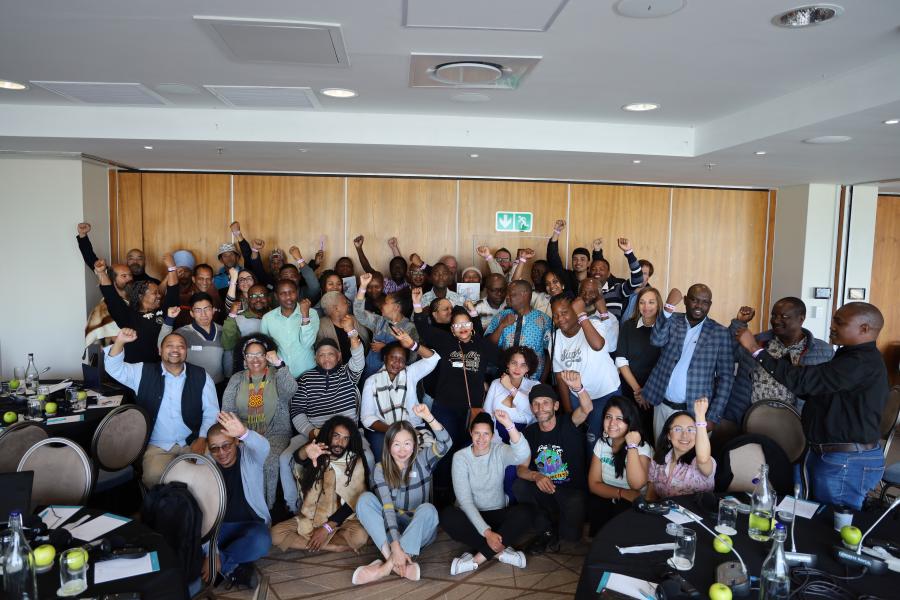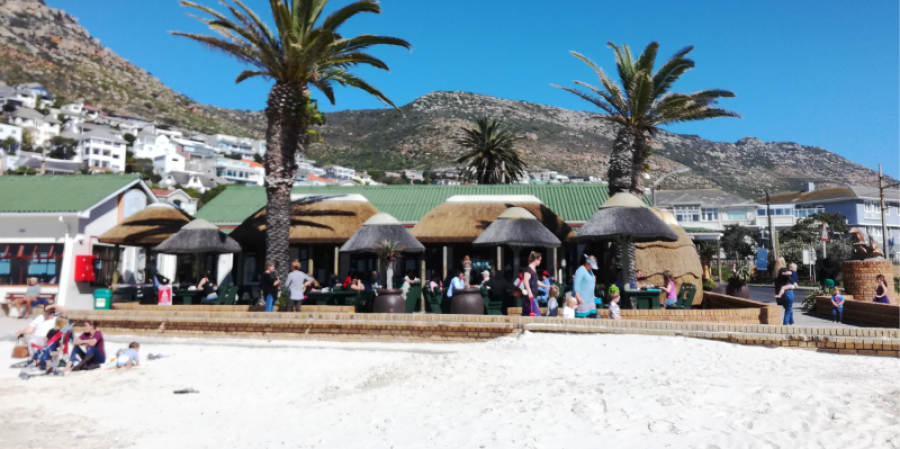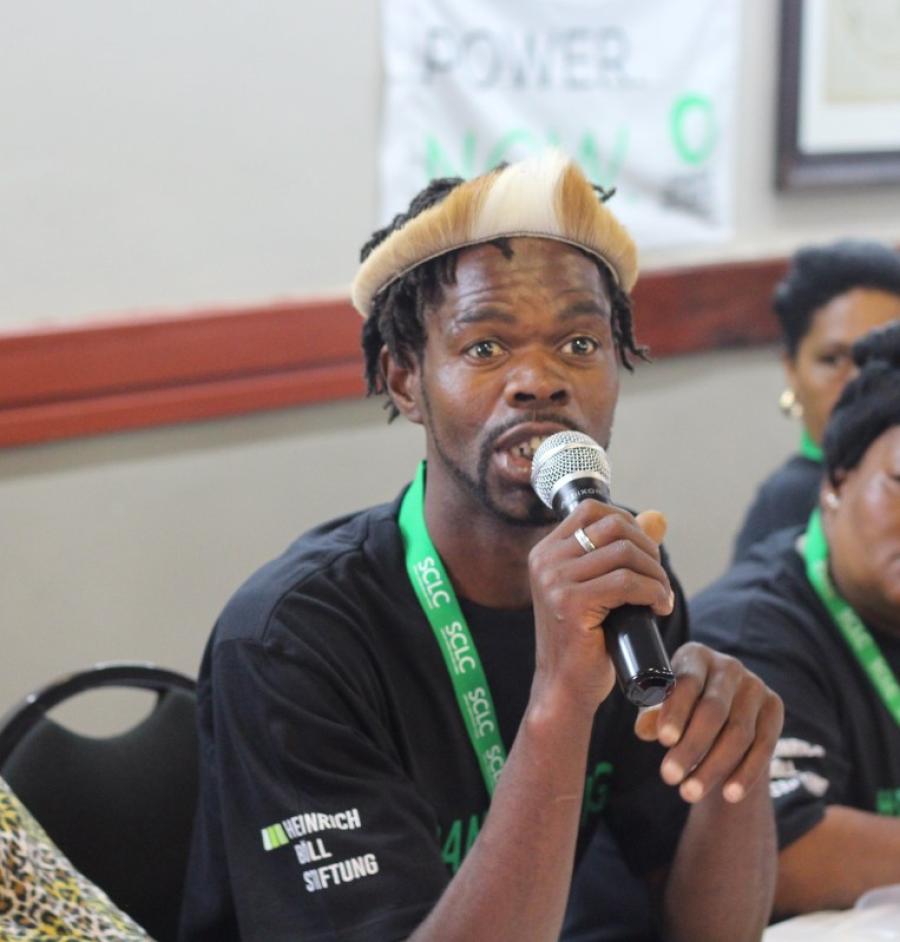South Africa is a multi-lingual society that has some unique linguistic problems because of its policy of apartheid. On one level, there are tensions between its two official language groups, Afrikaans and English. On another level, there are linguistic tensions between the ethnic Europeans and the black majority, mostly in regard to language instruction in schools. This issue was the spark that ignited the tragic Soweto riots in 1976. To understand this event and the language issue as it stands today, some background of the English vs. Afrikaans conflict is necessary.
Afrikaans and English
The conflict and rivalry between English - and Afrikaans-speakers goes to the heart of the history of white South Africa. The original European settlers in 1652 spoke Dutch, which eventually evolved into Afrikaans, but in 1822 the British gained control and proclaimed English as the language of the schools, churches and government. This, along with the freeing of slaves and the British efforts to establish racial equity in the courts, led to the Boers' treks northward starting in 1836, and as British imperialism grew, to the Boer War at the turn of the century. These events are engraved on the Afrikaner character and ideology.
When not taught in English, Afrikaners were schooled in Dutch, a language equally foreign to them by the early 19th century. They did not win the right to be taught in Afrikaans until 1925, since which time English and Afrikaans have been officially on equal footing. The Afrikaners' language is the primary symbol of their sense of cultural distinctness. There is even an abstract monument to Afrikaans in Paarl - perhaps the only monument to a language anywhere in the world.
Afrikaners, who today constitute roughly 60% of the white population, have since 1948 almost completely dominated politics. Today 19 of the 20 Cabinet members are native Afrikaans speakers. English, however, still holds greater prestige in finance and education. English is an urban, international language and Afrikaans mainly a rural, national one. English is the language of the more liberal newspapers as well as most black newspapers. Afrikaans is the language of the labor bureaus, the police, and the prisons, which explains black Africans' antipathy toward it. Coloreds, a mixed-race group, have traditionally been Dutch/Afrikaans speakers and helped shape the language, but many are now switching to English in sympathy with blacks.
Blacks and Whites
About 70% of South Africans speak one of the Bantu languages. There is an almost perfect correlation between race and language: those who speak a Bantu language as a mother tongue are black African, and there are few blacks who do not speak a Bantu language. No black elite class speaks only a Western language, as in many post-colonial African countries.
Within the past 33 years the South African government has forcibly relocated 2 to 3 million blacks in "tribal homelands," scattered like tiny islands within the national borders. Theoretically each tribe has its own separate homeland, all at various stages of "independence." These are attempts by the South African government to absolve themselves of responsibility for blacks while still benefiting from black migratory labor. These reserves are, for the most part, in remote and barren areas where poverty, malnutrition, and mortality are worse than in the cities. In addition, as tribal groups have traditionally been defined by language, the homelands separate blacks linguistically, thus limiting their contact with people from other groups.
The architects of the apartheid plan envisioned a separate system of education for blacks (even in the urban areas) where the vernaculars would be included gradually in university instruction. Blacks objected to this policy from the start. First, they saw the "divide-and-conquer" motive behind this plan. Second, they wanted to learn English as a language of wider communication. Education solely in the vernaculars has never reached beyond the sixth year of school.
In 1955, a policy of teaching in both English and Afrikaans on a 50-50 basis in the secondary schools was adopted. However, the shortage of black teachers proficient in Afrikaans (all teacher training schools for blacks are in English) allowed this policy to be carried out in only 26% of the schools. In 1976 the black Africans' hatred of apartheid, and of Afrikaans as the "language of the oppressor," came to a head in Soweto, a black "township" outside of Johannesburg. A school board there was dismissed in early February for resisting the imposition of Afrikaans. Protest began at that school and swelled over a period of months to the other schools, with the support of teachers, parents, and students.
On 16 June, 15,000 students marched in the streets carrying banners with such slogans as "Blacks are not dustbins - Afrikaans stinks." At one point police opened fire on a group of these students starting a chain of violence in Soweto that lasted some months and left 172 blacks, many of them in their teens, killed by police bullets. The revolt touched almost every city and village in South Africa that year, reaching far beyond the language issue. Strikes closed businesses and industry, and in Soweto, the government-instituted Bantu Council was forced to resign.
Since that time, the government has allowed individual school boards to choose the medium of instruction. Ninety-nine percent have chosen English. The vernacular is required as medium of instruction for only four years rather than six.
However, there are apartheid-imposed obstacles to learning English. Even in the urban areas, Africans' schools, residences, and workplaces are often separated from those of other races by law, and consequently they do not have the chance to interact freely with native English-speakers. Furthermore, the schoolteachers speak a distinctly African kind of English that can at times be almost unintelligible to native English-speakers. Finally, due to lack of funds (the government currently spends $1075 a year on each white student and $114 on each black child, the average student:teacher ratio is 60:1, forcing teachers to resort to teaching methods that allow for little individual attention. There are no textbooks, chairs, or electricity in many cases. This state of affairs affects blacks' whole education, of course, not just the teaching of English.
Some recent actions by the government might be hopeful signs. The acute need for skilled labor has led the government to upgrade black education. New classrooms are being built, teachers in black schools are now being required to have a high school degree, and pay scales are being adjusted to a parity level. Black education can be compulsory through the 10th year if a school so desires. But, as an indication of the deep distrust blacks hold against whatever the government does, only 13 out of 173 schools in Soweto have implemented this rule. They fear the government may use it to prevent students from staging strikes that have become a useful political tool. More importantly, they see these recent moves as being only adaptations within a structure that is fundamentally unjust, where blacks do not have even the right to vote.
A television service for blacks was begun on January 1; it has been broadcast in 5 of the vernacular languages. English is not being allowed, and Afrikaans is apparently not politically feasible. The Afrikaners' response to the blacks' rejection of their language has been ambivalent. Some older Afrikaners dismiss it all, saying, "Why do we want the Kaffirs to speak our language anyway?" But the more sophisticated realize they are losing a chance to influence blacks through Afrikaner media.
Although there is a strong motivation for blacks to learn English, this is a matter of practicality rather than loyalty. There is no danger of black languages being lost. There are newspapers and a literature in many Bantu languages. Some think that if blacks come to power in South Africa, Nguni and Sotho are likely to become official languages along with English.
The situation in South Africa gives a twist of irony to the problem of education in the vernaculars. Because the vernaculars there have been imposed in order to distance blacks from the well-established white power structure, their use has been resisted; in other African countries blacks are looking for ways to promote literacy in the vernaculars as a means of erasing the colonial legacy.
Language and politics are very much intertwined in South Africa, as they are everywhere. The government's divide-and-conquer approach to black language policy is allied to the whole degrading system of laws that keep blacks in permanent poverty. Enlightened policy is needed in the area of language as well as in all other aspects of political life.
Article copyright Cultural Survival, Inc.



